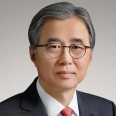*This is an opinion expressed in the Chosun Ilbo Op-ed on May 12, 2020.
President Donald Trump boasted in a Reuters interview late last month about his achievement on the still-unfinished defense cost-sharing negotiations with South Korea, stating “We can make a deal. … They’ve agreed to pay a lot of money.” Recent reports suggest that the US side demanded an increase in South Korea’s annual defense cost-sharing contribution to $1.3 billion, a 53 percent increase from the current level, and that President Trump has now approved it. While it is fortunate that the US demands have come down from their initial proposal, it is hard to ignore that this entire negotiation process has unfolded outside the norms and common sense between allies. Defense cost-sharing is only a part of the broad picture, but it is shaking the whole ROK-US alliance: The tail wags the dog.
Article 5 of the 1966 Status of Forces Agreement (SOFA), which was agreed between the two allies, says that the United States “bears all expenditures incident to the maintenance of the United States armed forces” in Korea while South Korea provides “all facilities and areas and rights of way.” In 1991, the Special Measures Agreement (SMA) was created as an exceptional clause to this agreement to ensure the stable stationing of US forces, with South Korea agreeing to share in some of the operating costs which the US was covering. Starting from $150 million in 1991, South Korea has steadily increased its share of contributions and is currently paying over $850 million per year. If the United States wants South Korea to drastically increase its contribution, it should state on what grounds and, if necessary, negotiate to revise SOFA and adjust the SMA to agree on a new framework and set of principles. But the Trump administration has not provided a basis for why South Korea should bear the additional defense cost-sharing.
President Trump speaks of South Korea as a rich ally “ripping off” the United States. Recently a US official reportedly said, “We are a poor country so Korea must help us.” America’s per capita income is $65,000 while South Korea’s is $30,000. Describing the United States as “poor” while calling South Korea “rich” does not seem like much of a compliment. Comments like these by US officials highlight how little regard they have for South Korea and raise concerns about the future of the alliance.
For the past 60 years, the ROK-US alliance has contributed to South Korea’s economy and security. However, South Korea has not been the only beneficiary. By allying with South Korea, the United States was able to secure a forward base across the Pacific on the Eurasian continent so that it could cope with the North Korean threat as well as contain the expansion of the Soviet Union and China. The history of the ROK-US alliance is not of one side’s sacrifice and the other’s free-riding but rather an exemplary “win-win” model of cooperation.
The ROK-US alliance is based on the universal values of freedom and human rights, and the loss of these shared values shakes its very foundations. The alliance must act as a breakwater to defend liberal democracy against the wave of totalitarianism flowing out of the Eurasian continent dominated by Russia, China, and North Korea. Common sense dictates that a healthy alliance requires minimum level of reasoning, trust, and respect. Disregarding this and publicly belittling South Korea from a one-sided perspective destabilizes the alliance and invites challenges from competitors. There is a concern that the piling-up of inappropriate comments by the Trump administration and the unnecessary conflict that defense cost-sharing negotiations is causing might result in drawing a second Acheson Line. Unreasonable demands for defense cost-sharing will only weaken the alliance by inciting anti-American sentiment in South Korea. Whose interests does this serve?
With the increasing North Korea’s nuclear threat and the uncertain future of Northeast Asia, it is undesirable for ROK-US differences of opinion to lead to friction by delaying defense cost-sharing negotiations. There is certain weight to media reports that President Trump has approved the $1.3 billion figure and, if so, the ball is now in South Korea’s court. How about we exercise some flexibility in the final number and instead seek to obtain measures that actually strengthen our national security?
For example, the core strategic assets needed to deter North Korea, such as strategic bombers, stealth aircraft, and nuclear-powered submarines, are still entirely under US control, meaning that in a critical moment South Korea does not have the right to decide its own destiny. The current defense cost-sharing negotiations should thus be thought of as an opportunity for South Korea to correct this unstable structure and aim to participate in decision-making process on the use of strategic assets. Since the tenth SMA negotiations, the US side has tried to include an “operational support category” into the existing SMA items to cover the costs of deploying strategic assets to the Korean Peninsula. This implies that participating in decision-making process is not a difficult goal. If we can participate in decision-making process in return for paying these costs, then we would strengthen our deterrent capabilities and can upgrade the ROK-US alliance to the next level. Just as the soil hardens after the rain, I hope that South Korea and the United States will act wisely to ensure that the ROK-US alliance emerges even stronger.
* The view expressed herein does not necessarily reflect the views of the Asan Institute for Policy Studies

 Facebook
Facebook Twitter
Twitter